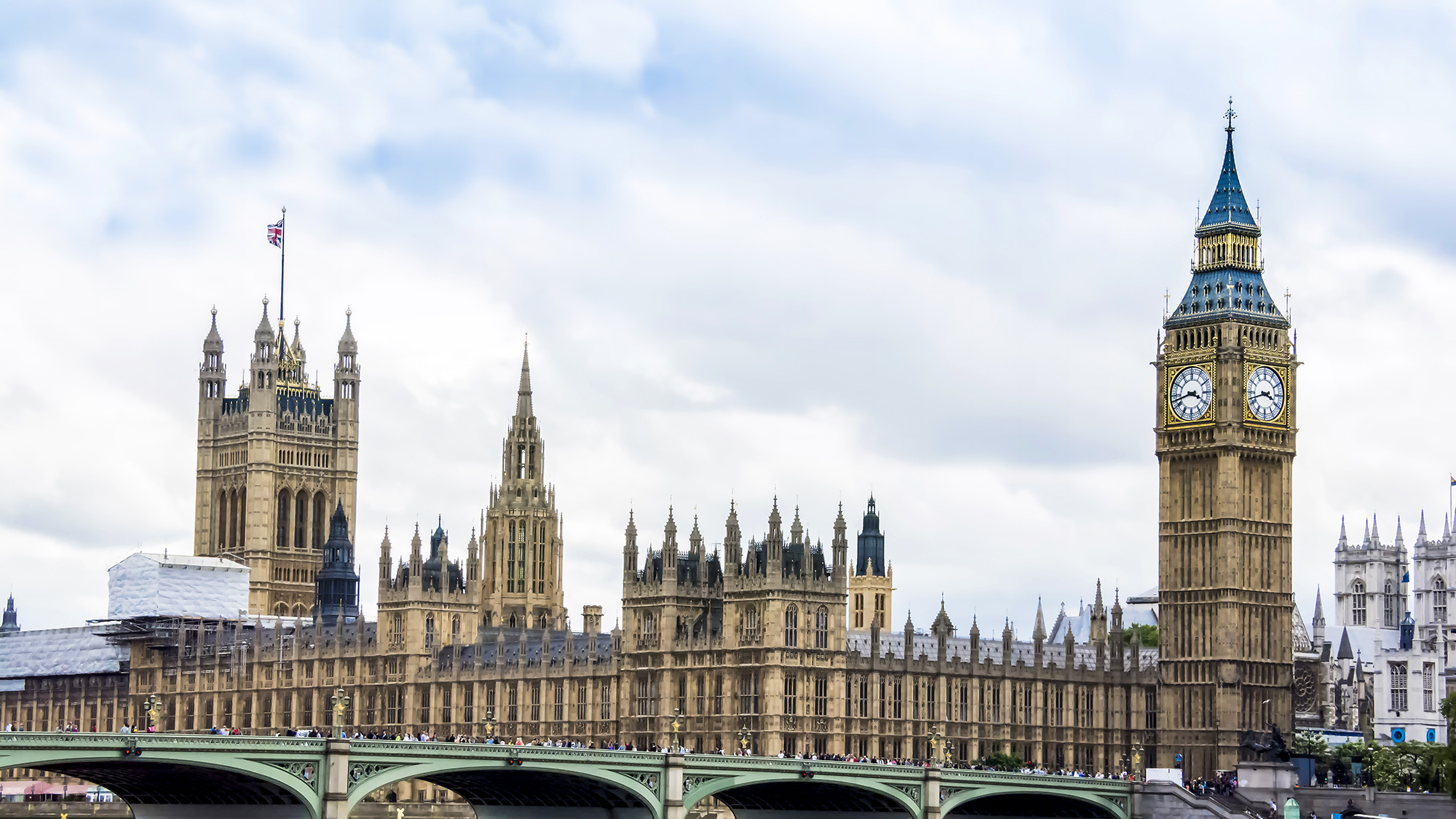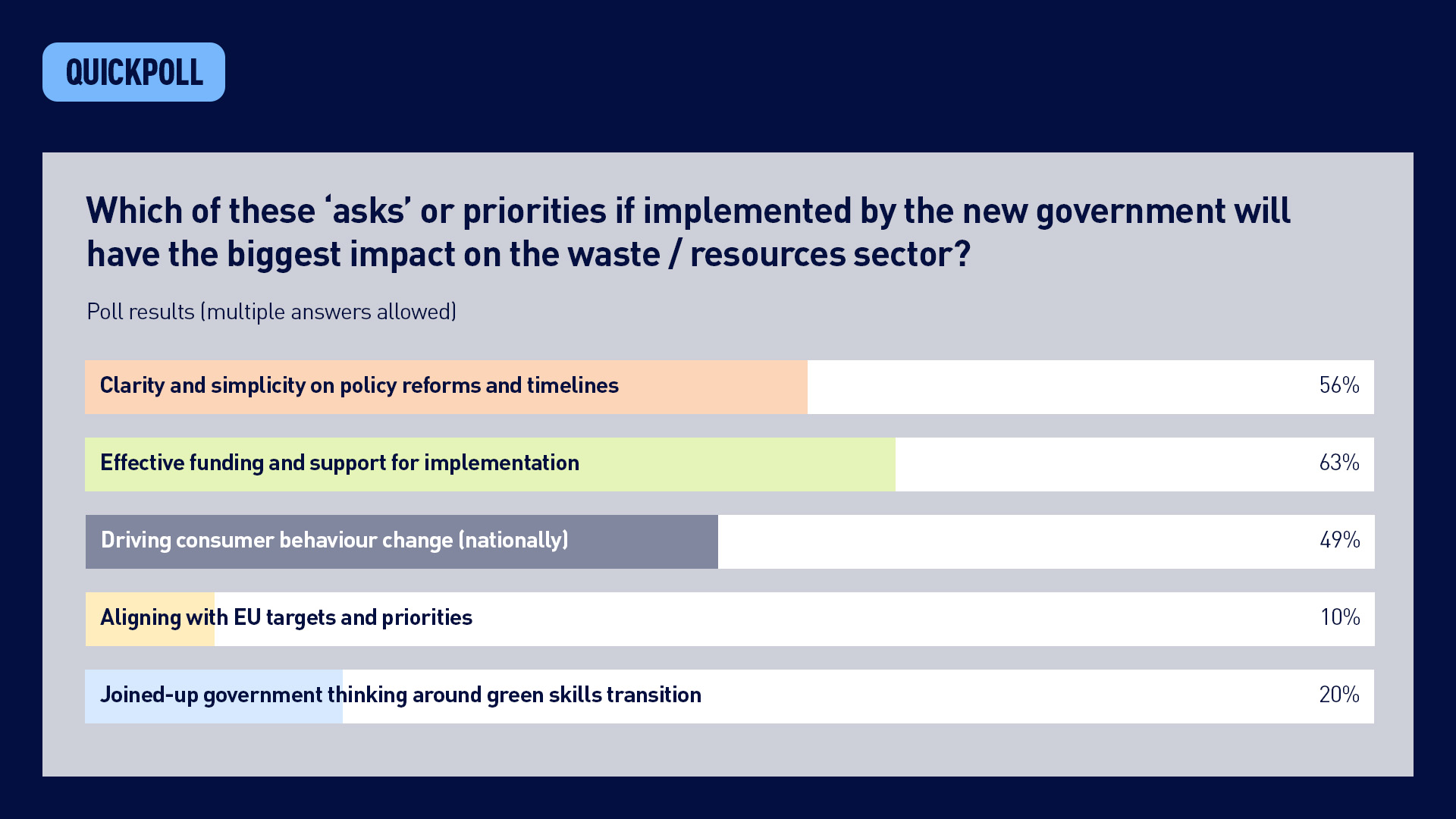Connecting the dots on green future and government policies
In fact, these are the issues tackled in our recent webinar titled ‘Shaping the future of waste and resources in the UK – asks for the government’ and hosted by SUEZ recycling and recovery UK’s Chief External Affairs and Sustainability Officer Dr Adam Read.
The panel of experts that graced the webinar included Ben Goodwin (Director of Policy and Public Affairs, Institute of Environmental Management and Assessment), Kate Jennings (Chief Executive, Association for Consultancy and Engineering and Environmental Industries Commission), Dr Nina Skorupska (former CEO, The Association for Renewable Energy & Clean Technology), and Katie Cockburn (Senior Director of Policy Media and Education, Chartered Institution of Wastes Management).
Circular economy and green jobs
One of the key themes of the webinar was the circular economy, a concept which SUEZ advocates for as a more sustainable alternative to wasteful linear system and our so-called ‘throwaway society’. Gone are the days of using something once and tossing it in the bins. Now, businesses and consumers alike are reimagining waste as a resource. It’s not just about being environmentally responsible, it’s about creating economic opportunities as well.
One panellist stressed that companies need to implement more circular practices “to achieve greater resource efficiency with higher sustainable income”. He added that it’s important to have a national circular strategy to ensure that the materials and products needed to transition to a net zero economy are reused, remanufactured and recycled.
An important part of this transition to the circular economy is a robust green jobs plan, another key point of agreement among the speakers. These are jobs that contribute to either the preservation or the restoration of the environment. From installing solar panels to developing new recycling technologies, green jobs are the future. And we’re not just referring to scientists or engineers here. It’s also for builders, teachers, or office workers – a green economy will create opportunities for everyone. This is why the UK’s Green Jobs Delivery Group is very important in establishing upskilling and reskilling the workforce across sectors to smoothly transition to net zero.
Most importantly, it is crucial that this plan goes beyond mere rhetoric and is backed by tangible investments in education, training and infrastructure. This will assure that no one is left behind in the transition.
Government’s role in breaking down silos
Perhaps the most vital takeaway from the webinar was the role of government in facilitating these changes. The panellists were unanimous in their call for clear, consistent and simple policies that provide a stable framework for action that can be implemented long-term. In other words, the sector is expecting the new Labour government to adopt a coordinated and well-funded approach that aligns with the broader goals of a circular economy and net zero targets.
One of the important points that came out of the discussion was the breaking down of silos within government agencies. When different departments – from transportation to energy to education – work in isolation, it is much harder to achieve the kind of comprehensive change we need. The result? Wasted time, money and opportunities.
In answer to one of the webinar’s poll questions, “Will Labour’s manifesto ‘missions’ unlock the traditional silo mentality of the government?”, majority of webinar audience (57%) said they are hopeful but, as we’re just a couple of months since the elections, the confidence level among the respondents is not that high yet. Interestingly, 23% shared that ‘it’s too soon to say anything or have no idea’ about it. This is reflective of an earlier poll question asking about the respondents’ confidence in the new government in delivering on net zero promises, with 64% being unsure and that it’s still too early to say.
While a couple of the panellists are open to the creation of forming a task force to focus on the challenges of the sectors, one speaker also cautioned that creating another taskforce that could take a couple of years to put strategies in place could slow down progress.
Behaviour change shaping the future
Equally important in the whole scheme of things is behaviour change, which came up in the discussion several times. Along with funding and clear and simplicity of policy reforms, the panellists see the need for widespread behaviour change to achieve net zero emissions and resource efficiency.
One panellist pointed out that this change will be difficult to see if “we don’t have the policies in place before we start asking people to change the way they behave”. He further explained that the sector needs to be clear about “what we do, how we do it, and its benefits to society”.
In one of the poll questions asked at the webinar asking about the priorities that will have the biggest impact on the waste and resources sector if implemented by the new government. Coming in at third place with 49% is ‘driving consumer behaviour change on a national level’. ‘Effective funding and implementation support’ was at the top of the poll with 63% and ‘clarity and simplicity on policy reforms/timeline’ was at 56%.
Overall, the webinar made it clear that big changes are happening at the policy and industry levels. Individual actions, however, still matter – every choice we make adds up. The good news is, living sustainably does not have to be hard.
Perhaps the most pressing message from the webinar was the urgency of taking action. The speakers, too, were united in their call for a ‘one crisis’ approach, which recognises that the challenges we face – from climate change to resource scarcity – are interconnected and must be addressed as one. All this means breaking down silos, strengthening collaboration, promoting behaviour change, access to clear and easy-to-understand policies and having the ability to take bold action towards sustainability.
If you missed the live webinar session, you can watch it on-demand here.

